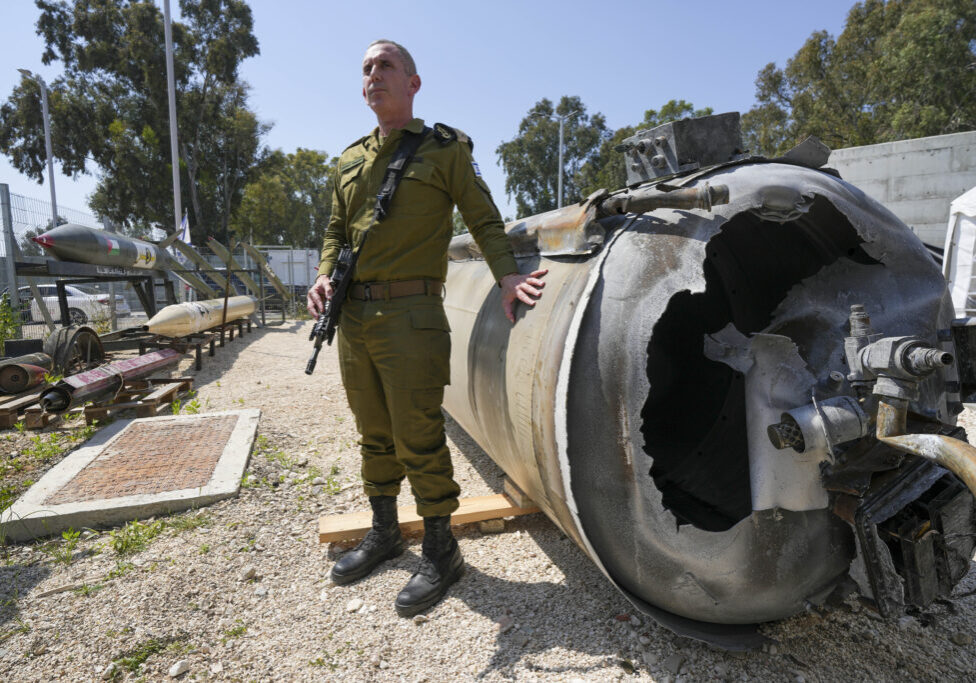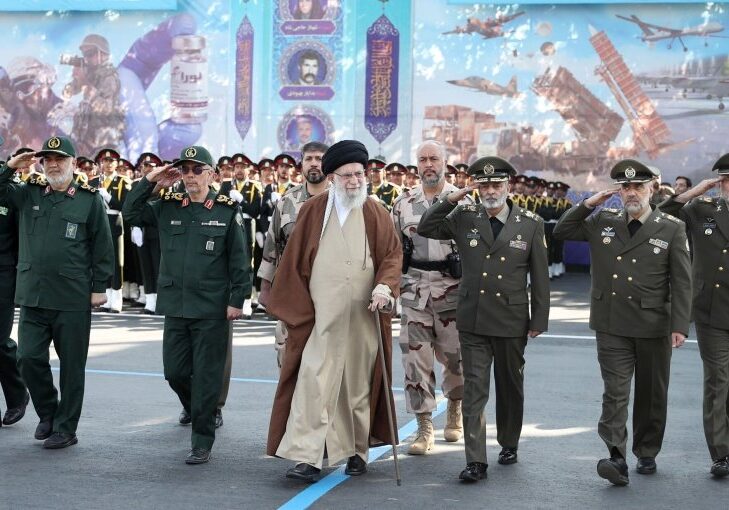Australia/Israel Review
Beyond Bali
Nov 1, 2005 | External author
A new trend for terrorism in Southeast Asia
By Zachary Abuza
On September 27, Gareth Evans — president of the respected International Crisis Group (ICG) and former Australian foreign minister — gave a keynote address in Australia in which he proclaimed, “JI no longer poses a serious threat in Indonesia or elsewhere”. Four days later, three suicide bombers walked into crowded restaurants in the Indonesian resort island of Bali and detonated their devices. Twenty-five have been confirmed dead and more than 130 were wounded.
There is little doubt that Jemaah Islamiah carried out the October 1 bombings. It is the only organisation in Indonesia with the capability, will, and track record to bomb a soft target such as a tourist venue. Moreover, it is the only group to ever employ suicide bombings in Southeast Asia. JI has been responsible for three major bombings over the last three years; beginning with Bali in October 2002, the JW Marriott in Jakarta in August 2003, and the Australian Embassy in September 2004. Suicide bombers were used in each.
The investigation into the bombings currently appears bogged down; no arrests have been made at the time of publication. Indonesian police have interviewed many witnesses and briefly detained six individuals – all were released after it was determined they had no involvement in the attacks. In addition, police have conducted raids of suspected safe houses in Bali, Central Sulawesi, and Java. Nine-volt batteries found at the scene suggest that the suicide bombers manually detonated their devices, rather than relying on remote cell phone detonation. One eyewitness from one of the two Jimbaran Beach bombings told investigators he saw a suicide bomber unzip his jacket and perhaps pull a cord, triggering the device. Also recovered at the scenes were ball bearings, batteries, cables and detonators. On a related note, many of these materials, as well as TNT, were recovered by Indonesian police in a July 2005 raid on a militant safe-house in East Java.
Currently the investigation has not succeeded in identifying the bombers, which is critical to the investigation in that it will both help authorities identify other cell members and also determine recruitment channels. From a counter-terrorism (CT) perspective, whether these individuals came out of the conflict regions of Poso or Sulawesi, if they are middle-class urbanites, or if they are students from radical madrassas will factor largely into understanding the networks and motives behind these attacks.
Moreover, the bombings raise a number of key questions about the state and changing tactics of JI. Analysts have increasingly been divided over the state and goals of JI, its relationship to al-Qaeda and divisions within its ranks. There is no doubt that JI is a smaller and more decentralised organisation than it was two to three years ago. More than 300 arrests-including many of its top leadership and al-Qaeda liaisons around the region-have clearly set the organisation back. Yet, there is still a significant cadre of roughly twenty Afghan/al-Qaeda trained first-generation leaders who are at large. Many are believed to be in Mindanao, training with the Moro Islamic Liberation Front (MILF) and Abu Sayyaf. A number of arrests have been made in the Philippines, Malaysia and Indonesia of JI members either ex-filtrating or infiltrating the southern Philippines. All have confirmed that the training of a new generation of members continues. Clearly, JI is patiently rebuilding its ranks.
The Rationale Behind the Latest Attacks
JI is a small, highly compartmentalised organisation, built along horizontal social networks. It is not a top-down hierarchical organisation. It is thus far unclear whether there is a pro-al-Qaeda faction seeking to target Western interests, a neo-Darul Islam faction that supports sectarian violence, or if differences in strategies are simply the result of a diffuse horizontal organisation without clear lines of command and control. One now finds cases of suspects wanted in conjunction with the Marriott bombing who were arrested only after engaging in sectarian violence in Central Sulawesi. The two strategies are not mutually exclusive, but rather mutually reinforcing. They share the same goal; they are simply tactics used at different times, based on changing external security conditions. When it is opportune to target the far enemy, they do so; otherwise the focus is on the near enemy. It is clear that JI will mobilise more resources towards fomenting sectarian conflict in the coming years as it is the primary means for recruiting and indoctrinating a new generation of recruits. To that end, 2004-05 saw an alarming upsurge in lateral conflicts. Yet opportunistic attacks on Westerners and Western targets will continue to be employed.
What should be made of the fact that JI turned to smaller bombs? The hallmark of JI’s past three major attacks that have targeted Western interests were large truck bombs, in the order of 100+ kilos, mainly comprised of ammonium nitrate and diesel. While these bombs displayed significant technical skill, ambition and a desire to make a statement, the attacks were costly (approximately $30,000 each) and logistically difficult, especially in the context of an intense police dragnet.
Were the smaller bombs the result of diminished resources? Counter-terrorism agents know that much of the money for the previous attacks came directly from al-Qaeda’s coffers, roughly $130,000. This may indicate an inability to procure the necessary materials, and also highlights the limited human and material resources to put together large bombings. It may also signify that the link to al-Qaeda no longer exists. The extent of the current relationship is unclear; many in the top leadership with close ties to al-Qaeda have been arrested, as have many in al-Qaeda’s central apparatus. But many of the top money-men for al-Qaeda and JI remain at large, such as Zulkifli Marzuki (the Malaysian CPA who managed many of the front companies) and Aris Munandar (the Indonesian colleague of Abu Bakar Bashir who ran al-Haramain to support JI).
Could the bombings reflect changes in the external environment? Assembling a truck bomb may simply draw too much attention, and smaller bombs often prove safer to manufacture while at the same time their components can be purchased more discreetly. It also likely indicates a fundamental change in tactics. JI leaders have tried to increase the tempo of bombings to one every six months. They simply did not have the material or human resources to maintain this pace with large truck bombs. Using smaller bombs against soft-targets is almost certainly how they hope to increase the tempo of bombings to more than one per year. Small, cheap bombs such as these-easy to mass assemble and to conceal-are nonetheless quite lethal. Three well-placed pipe bombs killed more people than the attacks on the JW Marriott and Australian Embassy combined; and at a fraction of the cost and with arguably greater economic impact.
In fact, JI has been using smaller bombs for some time, especially in the Malukus and Sulawesi where they have been attempting to foment more sectarian violence. In May of this year, a bomb in a Tentana marketplace killed 22. Between October 2004 and March 2005, police seized more than 200 small Improvised Explosive Devices (IEDs) in JI caches and safe-houses located in the Malukus and Sulawesi.
Why Bali again?
Firstly, JI’s goal is to collapse the Indonesian state; the only way they can achieve this is by targeting the soft economic underbelly. By attacking Bali, they are striking-first and foremost-at the economy, and hence the stability of the regime. Secondly, targeting Bali drives out Westerners, whom they believe are a corrupting force on society. In their eyes, Islam can never triumph over the West as long as it is infected with impurities. Finally, the victims are legitimate in their eyes: Western kuffars, Hindu polytheists and apostate Muslims.
What does this mean for Indonesia’s counter-terrorism efforts? Indonesia in fact deserves credit for their recent accomplishments. Nearly 200 JI members have been arrested, and importantly they have been given fair trials, essential de-legitimising the group. Moreover, Indonesian police investigations are becoming far more professional, in part due to Australian and American assistance and training.
Still, there is much more to be done. While Indonesian authorities have prosecuted people that can be clearly linked to bombings with vigour — meting out stiff sentences — they have been appallingly lax when it comes to JI members not directly linked to terrorist acts, but who are members, fundraisers, recruiters and/or ideologues. Abu Bakar Bashir is the poster child of this phenomenon. JI’s spiritual head has served minor sentences for immigration violations, and is currently serving a 30-month sentence for conspiracy, which has already been reduced by four months. Abu Jibril, one of JI’s founders and a leader of the sectarian violence in the Malukus and Sulawesi in which thousands were killed, received a four-month immigration sentence.
Beyond this, the Indonesian government must ban JI outright. Under the current law, membership within JI is technically not illegal. The Indonesian government continues to make assertions that because JI is not a registered entity, it cannot be banned, or it asserts that it is pointless to ban something that “is not a formal organisation with card-carrying members.”
Notably, there has been deafening silence from Indonesia’s religious elite. The Ulama’s Council of Indonesia has not only failed to condemn the attacks, it has recently issued a number of hard-line fatwas attacking progressive Muslim organisations and scholars, such as the Liberal Islam Network, while sanctioning attacks on the mosques of a small Muslim sect, the Ahmadiya. Muslim leaders such as Hidayat Nur Wahid, the spiritual leader of the Islamist and rapidly growing Prosperous Justice Party (PKS) and speaker of the upper house of parliament, continue to interfere in CT efforts by making assertions such as “I have valid information that these acts may be related to interstate competition in the tourism industry.” Such comments from political leaders makes CT that much more difficult for Indonesia and Southeast Asia as a whole.
Dr Zachary Abuza is currently Associate Professor for Political Science and International Relations at Simmons College, and one of the world’s leading scholars of Southeast Asian terrorism. © Terrorism Monitor, published by The Jamestown Foundation (http://www.jamestown.org) all rights reserved, reprinted by permission.





